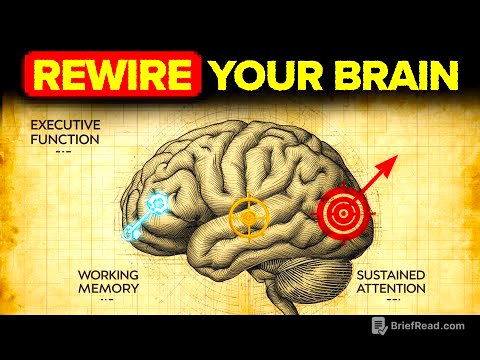TLDR;
This YouTube video by SPM IAS Academy provides an analysis of newspaper articles from October 6, 2025, covering a range of topics relevant to the UPSC syllabus. The discussion includes the Sir Creek issue between India and Pakistan, coral larvae cryobanks, the International Social Security Association (ISSA) Award 2025, and xenobiology.
- Sir Creek dispute origins from conflicting claims based on historical agreements and international law.
- Coral reefs are endangered by global warming, leading to coral bleaching and potential ecosystem collapse.
- India received the ISSA Award 2025 due to increased social security coverage.
- Xenobiology explores the possibility of life being supported by non-traditional biomolecules.
Introduction [0:00]
The video introduces the newspaper analysis for October 6, 2025, by SPM IAS Academy, noting that a PDF version of the analysis is available via a link in the comment section.
Topics of the day [0:15]
The presenter lists the topics to be covered in the analysis, which include the Sir Creek issue, coral larvae cryobanks, the International Social Security Association (ISSA) Award 2025, and xenobiology.
Sir Creek issue [0:20]
The Sir Creek is a 96 km strip of marshy land in the Run of Kutch region, disputed between India and Pakistan. Pakistan claims the "Green Line" as the boundary, asserting the entire creek belongs to them, based on a 1914 agreement between the Rao of Kutch and the Chief Commissioner of Sindh Province. India claims the "Red Line," the mid-channel of the navigational channel, as the boundary, citing the Thalweg Principle of international law for water bodies. Pakistan rejects the Thalweg Principle, arguing Sir Creek is not navigable and the 1914 agreement should prevail. The region's economic significance lies in its rich fishing grounds and potential oil and natural gas reserves. Strategically, control of the area allows either country to exert pressure on the other, with India seeking at least half the area and Pakistan seeking complete control. Recent news indicates Pakistan is strengthening its military infrastructure in the area, prompting warnings from India.
Coral larvae cryobank [11:25]
Corals are tiny marine animals, or coral polyps, that are sessile and use tentacles to catch food. Coral colonies form exoskeletons by absorbing calcium from the water, creating hard structures. When corals die, they leave behind calcium carbonate structures called coral reefs, upon which new corals grow, forming layer upon layer. The color in coral reefs comes from zooxanthellae, algae that have a symbiotic relationship with coral polyps, providing them with food and oxygen while receiving protection in return. The Great Barrier Reef in Australia, a UNESCO World Heritage Site, is the largest living structure on the planet, visible from space, and supports high biodiversity. The Coral Triangle in Southeast Asia is another significant area with diverse coral species, referred to as the "Amazon of the Sea." Global warming is causing coral bleaching, where corals expel zooxanthellae due to stress from temperature changes, leading to a white appearance and potential death if prolonged. This bleaching threatens marine ecosystems, coastal protection, and livelihoods dependent on coral reefs. The Philippines has launched Southeast Asia's first coral larvae cryobank to preserve coral genetic diversity at -196 degrees Celsius using liquid nitrogen, following Australia's establishment of the world's first such bank in 2012.
International Social Security Association (ISSA) Award 2025 [28:33]
Social security systems are government initiatives providing financial support to vulnerable populations, such as pension schemes, medical insurance, and unemployment assistance. India received the International Social Security Association Award for 2025 because social security coverage in India has increased from 19% in 2015 to 65% in 2025. This increase is driven by simplified laws, including the consolidation of labor laws into four codes, one of which is the Social Security Code 2020, and initiatives for unorganized workers like the E-shram portal and Jan Dhan Yojana, which provides access to bank accounts and micro-insurance schemes.
Xenobiology [33:20]
Xenobiology is a branch of biology that explores the possibility of life being supported by molecules other than the traditional biomolecules (lipids, nucleic acids, carbohydrates, and proteins). The term "xeno" comes from the Greek word for stranger or alien. Xenobiology suggests that life may exist in forms not currently recognized by traditional biology, potentially explaining why we have not yet found life on other planets.
Answer to the previous day's questions [35:13]
The video concludes by providing answers to the previous day's practice questions.









